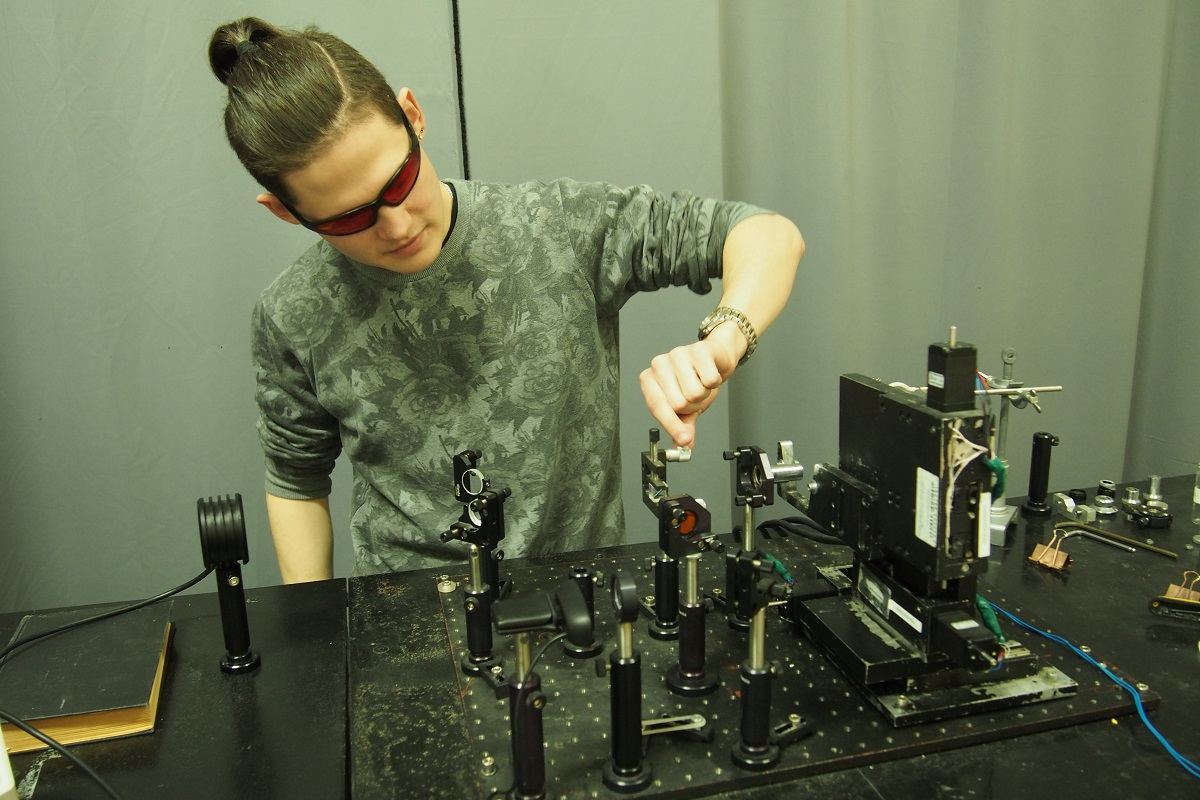St Petersburg University students develop a sensor to detect biomarkers in human sweat

The finalists of the “SPbU Start-up – 2019” competition, the HealthSensor team, are working to create a device for measuring glucose levels and detecting oncological biomarkers in the human body. The device is planned to be made on the basis of a flexible printed circuit board, so that it is comfortable to wear on the body.
The idea to create this unusual device was born in the laboratory of laser metal deposition at St Petersburg University. This is where scientists are engaged in the creation of conductive metal paths using the direct laser writing method. Such metallic conductors based on gold and copper can be used as electrodes that are sensitive to glucose, adrenaline, dopamine and other substances such as human blood or sweat. Recently, the attention of researchers has been focused on the creation of non-metallic electrodes on flexible polymer carriers, as well as the creation of flexible printed circuit boards.
“The technology of flexible electronic devices, the so-called flexible printed electronics, has been actively developed for five to six years,” said Ilia Tumkin. He is the team's research supervisor, an assistant professor at the University, and a candidate of chemistry. “In the HealthSensor project, our team will combine the knowledge and skills to create a flexible sensory platform for diagnosing various diseases, such as diabetes. In the future, various types of cancer can be diagnosed because their candidate biomarkers are volatile organic compounds which can also be detected in sweat.”
The device is planned to consist of two parts: a sensor unit with biomarker-sensitive electrodes; and a flexible printed circuit board with microelectronics placed on it. According to the inventors, the development is based on the electrochemical method. This is one of the most accurate and inexpensive ways to detect biomarkers.
One of the key advantages of the invention is non-invasiveness.
Vladimir Andriianov, the team captain and a third-year chemistry student
“Such systems enable the analysis to be significantly simplified, since there is no need for blood sampling. This means that they make the procedure painless and safe. Moreover, our device will make it possible to monitor various human health indicators day and night,” said Vladimir Andriianov, the team captain and a third-year chemistry student.
Today, the team is developing a prototype. Currently, only a prototype of a printed circuit board on a classic silicon base is ready. In the near future, ground breakers are planning to test the first version of the product on laboratory mice. They will also study the mechanical stability of the sensor element, for example, after repeated bending and unbending. According to the inventors’ calculations, if everything goes well the final cost of the device will be about 800 roubles.
Among those who are also working on the HealthSensor project are: Evgeniia Khairullina, a doctoral student in chemical science; Vladislav Peskin, a first-year student in management; and Alina Prokofeva, a third-year student in dental medicine.

